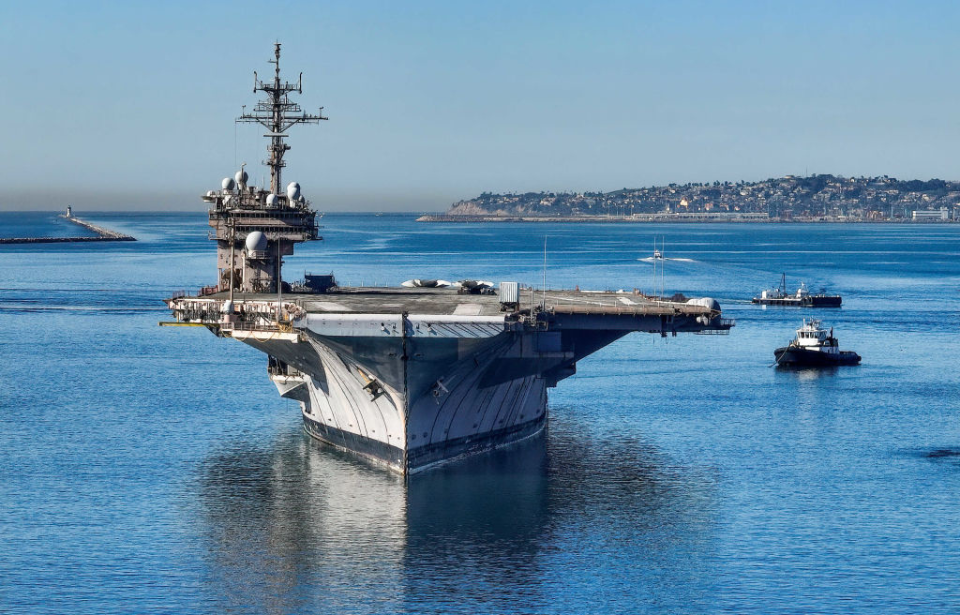In May 2022, the decommissioned supercarrier USS Kitty Hawk (CV-63) arrived in Brownsville, Texas, to begin its dismantling. This iconic vessel served the US Navy with distinction for almost five decades, having been commissioned in 1961 at a construction cost of $264 million (equivalent to about $2.5 billion today).
In 2021, Kitty Hawk was sold to a scrap company for just one penny. While debates continue about the financial value of this historic ship, the importance of her nearly fifty years of service remains undeniable.
Captivating military personnel and civilians alike
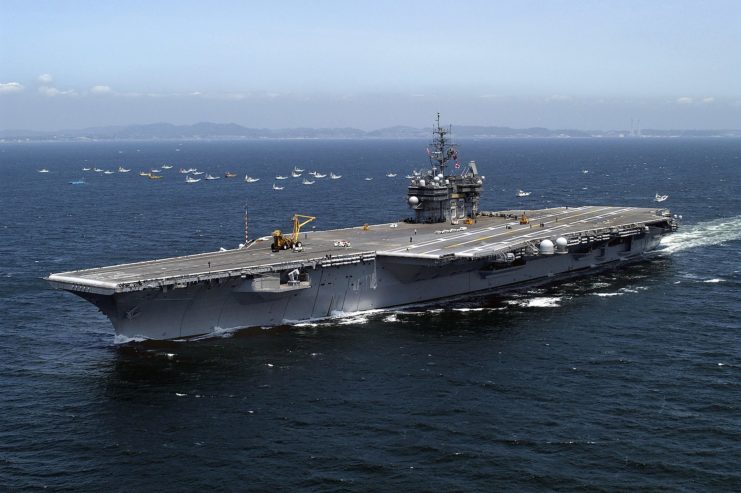
Construction of the USS Kitty Hawk, the lead ship in the Kitty Hawk-class of aircraft carriers, began at the New York Ship Building Corporation in December 1956. It was launched in May 1960 and officially commissioned the following year. Afterward, the ship embarked on its first voyages, which included journeys to South America and cruises off the coast of Japan.
Service during the Vietnam War
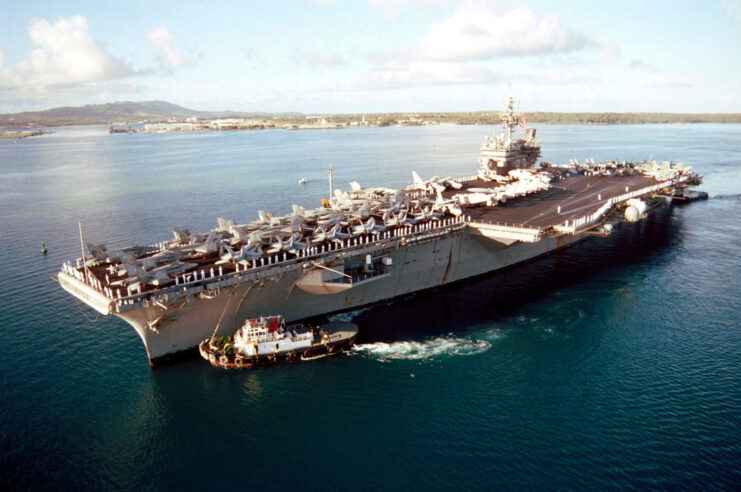
During the Vietnam War, the USS Kitty Hawk operated in Southeast Asia and later received upgrades to enhance her versatility as a multi-role carrier. In the 1970s, she served in the Western Pacific, taking part in humanitarian efforts such as rescuing Vietnamese refugees and providing aid following the assassination of Korean President Park Chung-hee. The Kitty Hawk was also deployed to the Arabian Sea during the Iran Hostage Crisis.
For the remainder of her service, the ship continued to be stationed in both the Middle East and the Pacific.
Weapons equipped by the USS Kitty Hawk (CV-63)
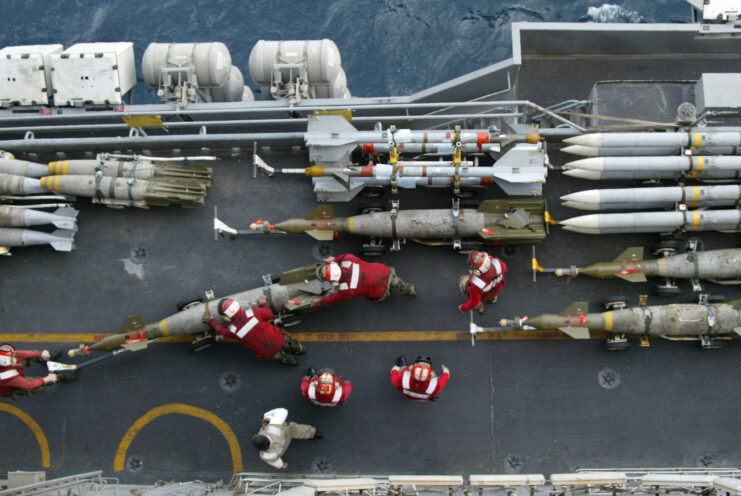
Armed with an arsenal that included RIM-7 Sparrow surface-to-air missiles (SAMs), two RIM-116 Rolling Airframe Missiles (RAMs) and two Phalanx Closed-In Weapon Systems (CIWS), the USS Kitty Hawk was a marvel in the US Navy’s fleet. She housed between 70 and 85 aircraft, accommodating Boeing F/A-18E/F Super Hornets, Northrop Grumman EA-6B Prowlers, E-2C Hawkeyes, Sikorsky SH-60F and HH-60H Sea Hawk helicopters, and a Grumman C-2A Greyhound.
Beyond her military significance, Kitty Hawk hosted a constellation of celebrities, with notable figures being US President John F. Kennedy, Nancy Sinatra and author John Steinbeck gracing her decks. The vessel even graced Hollywood when Disney utilized her for the filming of the 1966 movie, Lt. Robin Crusoe, U.S.N.
In a historic milestone, Kitty Hawk, in December 1967, earned the distinction of being the first carrier to receive the Presidential Unit Citation. This accolade recognized her exceptional service during the Vietnam War, particularly her contributions during the Tet Offensive.
Sold down the river
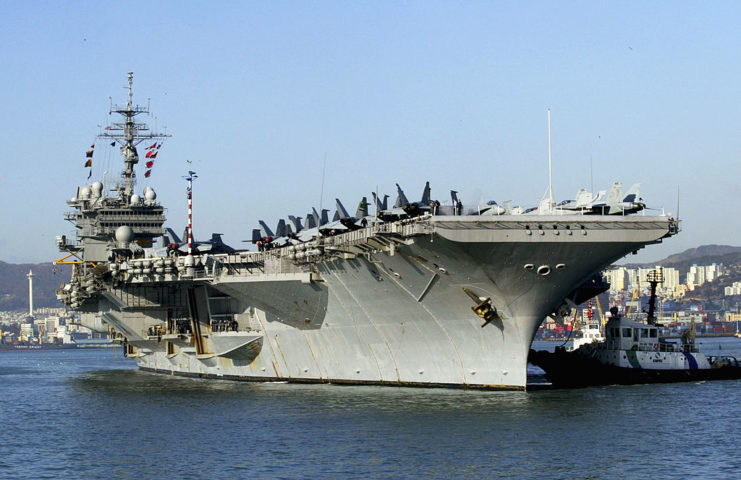
n 2005, the Navy revealed that the USS George Washington (CVN-73), a nuclear-powered aircraft carrier, would take over from the USS Kitty Hawk at United States Fleet Activities Yokosuka in Japan.
The decommissioning began in 2008, and the ship was formally retired in 2019 at Bremerton, Washington. On the day of its retirement, over 2,000 individuals gathered in Kitty Hawk‘s hangar bay for a ceremony to to celebrate the legacy of the Navy’s oldest active warship.
Veterans tried to save her
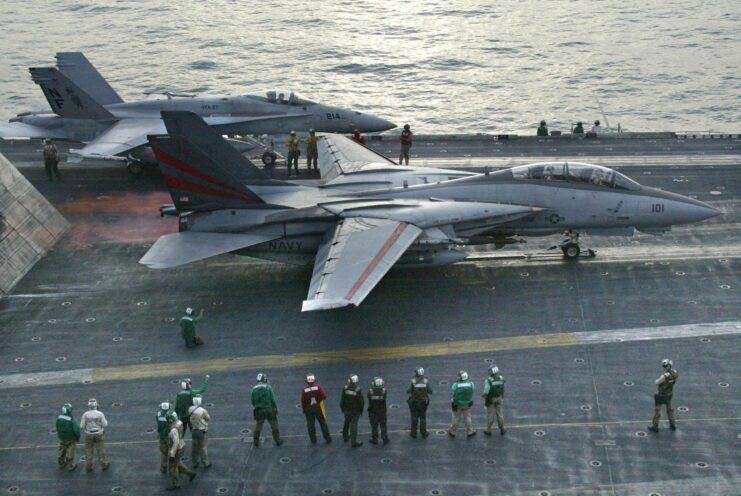
While her fate was still undecided, the USS Kitty Hawk Veterans Association raised $5 million to preserve the carrier as a museum. Unfortunately, the Navy decided against the plan, in favor of scrapping the ship. In October 2021, the service sold the USS Kitty Hawk and another carrier, the USS John F. Kennedy (CV-67), to International Shipbreaking Limited for one cent each.
Are you a fan of all things ships and submarines? If so, subscribe to our Daily Warships newsletter!
In May 2022, Kitty Hawk reached her final destination in Texas to begin the scrapping process, which is expected to take between five and 10 years, at a cost of around $750 million.
